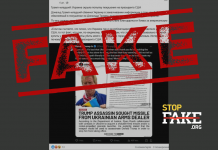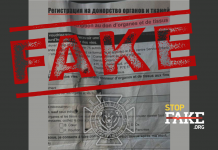Sources: dw.com, cnn.com, vice.com, 112.international, disinformationindex.org
At least 235 million USD was earned from advertising on websites of disinformation and extremist character. Worth noticing, ad exchanges whose ads were shown on the dark side of the Internet could have no consciousness of what type of activity they sponsor.
The new research by Global Disinformation Index organization shows that the issue is serious. Researchers analyzed over 20 thousand of dubious Internet domains suspected of being disinformation outlets. GDI verified the traffic, users, also ad types and potential profits.
Many ads shown on suspicious websites is programmatic advertising published thanks to algorithms of such giants as Google or AppNexus. As DW.com noticed, programmatic ad makes up to two thirds of digital advertising and generates 84 billion USD per year (2019).
Additional problem is that some advertisers order online ad and do not monitor where is it published. Furthermore, some customers are not even informed where their ads are displayed – and in the best case they just get alerted that their ads show up next to fake news or suspicious information.
As an example, we can use the ad of insurance agency Allstate Insurance, which showed on the website Nowtheendbegins.com with conspiracy theories, but, according to dw.com, the problem also touches such giants as Deutsche Bahn, car producer Opel, Deutsche Telekom or Postbank – it is little probable that those enterprises know that their money finance disinformation. This fact highlights the problem with modern advertising market – think DW.com editors.
As we read on vice.com, such advertising helps to maintain websites of pro-Kremlin RT (former Russia Today) or, for example, abcnews.com.co, trying to pass for ABC News portal. As we read on vice.com, the most frequent ads provider for those pages is Google.
Google states that because of violation of the rules every year it deletes billions of ads, but it is not capable of controlling all Internet. “Limits between biased content, state propaganda and fake stories published only for money are, in the best case, unclear”, we read in Vice.
In a commentary for Vice, Google criticizes the methodology of Global Disinformation Index: “The report does not explain which sites we should recognize as disinformation and why and it make wrong calculation of publishers revenue” – said Caroline Klapper-Matos, the spokesperson of the giant from Silicon Valley. In the meantime, as stated for CNN Danny Rogers, the director for technology in Global Disinformation Index, the GDI’s findings show only “the top of the iceberg”.
Sources: dw.com, cnn.com, vice.com, 112.international, disinformationindex.org





